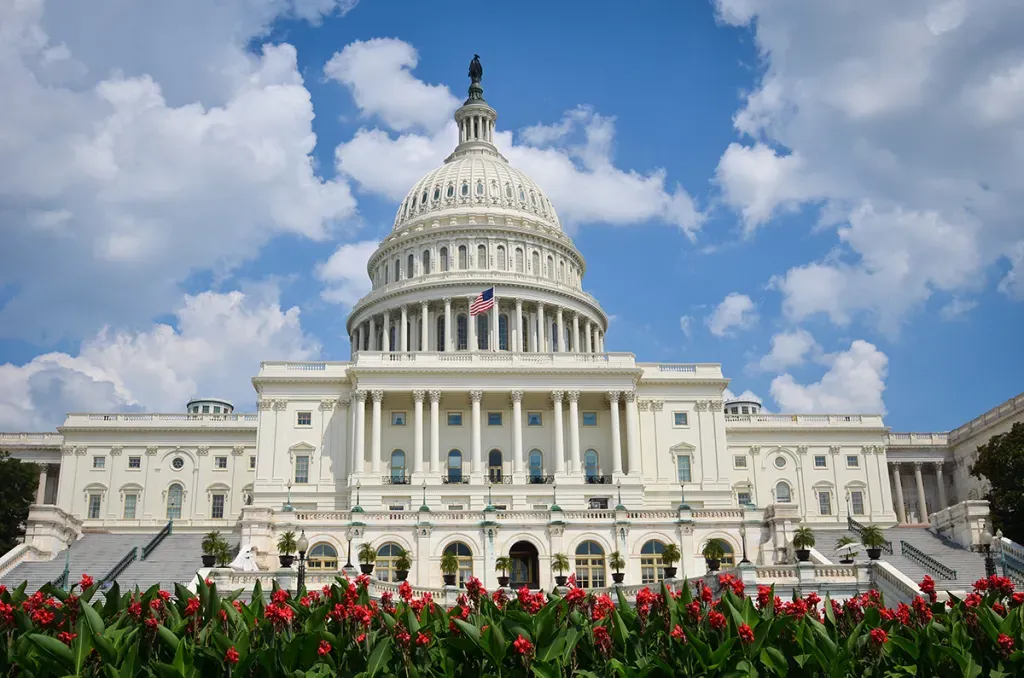US Draft bill on crypto introduced into Congress according to a report by Forbes. The bill was introduced at the end of the year when cryptocurrencies are taking a hit on the market and in the government. Notably, people have reacted badly to the proposal of the Libra cryptocurrency by Facebook.
The bill is called the ‘Crypto-Currency Act of 2020,’ and the stated purpose is to clarify which Federal agencies regulate digital assets, to require those agencies to notify the public of any Federal licenses, certifications, or registrations required to create or trade in such assets, and for other purposes.
From the Report
An initial review of the bill provides for the following:
(1) Assigns a definition of ‘Federal Digital Asset Regulator’ or ‘Federal Crypto Regulator’ to three agencies – the Commodity Futures Trading Commission (CTFC), the Securities and Exchange Commission (SEC), and the Financial Crimes Enforcement Network (FinCEN).
(2) Splits digital assets into three different categories: crypto-currencies, crypto-commodities, and crypto-securities.
(3) The Federal Crypto Regulator is assigned one of the categories and is defined as the sole Government agency with the authority to regulate:
(a) CFTC – crypto-commodities;
(b) SEC – crypto-securities;
(c) FinCEN – crypto-currencies.
(4) Each Federal Crypto Regulator is required to make available to the public and keep current a list of all Federal licenses, certifications, or registrations required to create or trade in digital assets.
(5) Requires the Secretary of the Treasury, through FinCEN, to establish rules similar to financial institutions on the ability to trace cryptocurrency transactions.
US Draft bill on crypto provides a framework for defining cryptocurrencies. A breakdown of how each term is defined in the bill is listed below:
Crypto-Commodity
In the description of a crypto-commodity, the definition is economic goods or services that a) has full or substantial fungibility, b) the markets treat with no regard for who produced the goods or services, and c) rests on a blockchain or decentralized cryptographic ledger.
Crypto-Currency
Crypto-currency is defined as representations of United States currency or synthetic derivatives resting on a blockchain or decentralized cryptographic ledger. The types that are included in this definition are:
(1) such representations or synthetic derivatives that are reserve-backed digital assets that are fully collateralized in a correspondent banking account, such as stablecoins.
(2) synthetic derivatives that are determined by decentralized oracles or smart contracts; and collateralized by crypto-commodities, other crypto-currencies, or crypto-securities.
Crypto-Security
Crypto-security means all debt, equity, and derivative instruments that rest on a blockchain or decentralized cryptographic ledger, with an exception. For a synthetic derivative that is operated and registered with the Department of the Treasury as a money services business and is operated in compliance with all Bank Secrecy Act and all other Federal anti-money laundering, anti-terrorism, and screening requirements of the Office of Foreign Assets Control and the Financial Crimes Enforcement Network.
Decentralized Oracle
A ‘decentralized oracle’ means a service that sends and verifies real world data from external sources outside of a blockchain and submits such information to smart contracts that rest on the blockchain, thus triggering the execution of predefined functions of the smart contract.
Reserve-Backed Stablecoin
A reserve-backed stablecoin is defined as a representation of currency issued by the United States or a foreign government that rests on a blockchain or decentralized cryptographic ledger, and is fully backed by such currency on a one-to-one basis and fully collateralized in a correspondent banking account.
Synthetic Stablecoin
The term ‘synthetic stablecoin’ means a digital asset, other than a reserve-backed stablecoin, that is stabilized against the value of a currency or other asset; and rests on a blockchain or decentralized cryptographic ledger.
The Chosen Federal Crypto Regulators: SEC, CFTC, and FinCEN
As three regulators are defined as the new digital asset regulators in the Federal government, this is not the first sign that there may be a common role between them for this new asset class in a similar fashion to how the Federal Reserve, FDIC, and the OCC coordinate their efforts in the regulation of the nation’s largest financial institutions. On October 11, the leaders of each of these regulators wrote a joint statement on activities involving digital assets with respect to their obligations under BSA. US Draft bill on crypto provides a framework for defining cryptocurrencies.



